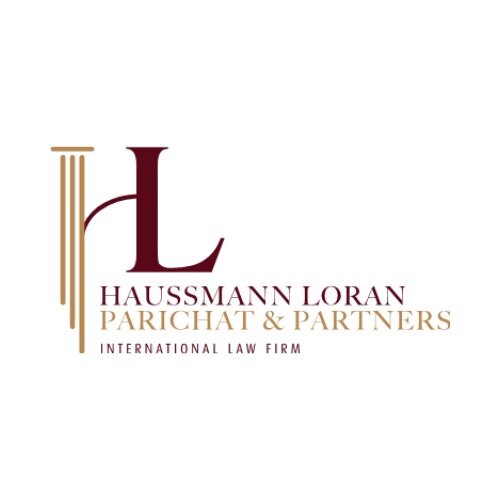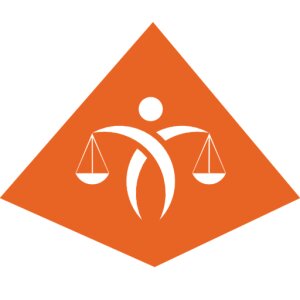Best Admiralty & Maritime Lawyers in Bangkok
Share your needs with us, get contacted by law firms.
Free. Takes 2 min.
List of the best lawyers in Bangkok, Thailand

Haussmann Loran Parichat & Partners International Law Firm
30 minutes Free ConsultationAbout Admiralty & Maritime Law in Bangkok, Thailand
Admiralty & Maritime law in Bangkok, Thailand, is a specialized area of legal practice that deals with issues involving ships, shipping, and maritime commerce. Given its strategic location along the Chao Phraya River and proximity to the Gulf of Thailand, Bangkok plays a crucial role in the country’s maritime activities. This branch of law covers various topics including vessel registration, maritime contracts, cargo disputes, marine insurance, and personal injury claims related to seafaring activities. With Bangkok being a pivotal commercial hub, understanding the intricacies of maritime law here is essential for businesses and individuals involved in related industries.
Why You May Need a Lawyer
If you are engaged in any maritime activities, several situations might necessitate the need for a lawyer. Common scenarios include disputes over shipping contracts or cargo damage, vessel arrest actions, environmental compliance issues, or navigational rights conflicts. If you are a seafarer or part of a crew, you might require legal help for personal injury claims or employment disputes. Additionally, companies involved in marine insurance, shipping logistics, or port operations might face complex legal issues requiring expert legal assistance.
Local Laws Overview
Thailand's maritime laws are influenced by both international conventions and domestic statutes. The primary local regulation is the Thai Ship Act, which governs registration, ownership, and mortgage of Thai vessels. The Act mandates that at least 51% of a Thai ship's shares must be held by Thai citizens. The Thai Civil and Commercial Code also plays a role, particularly in matters of sale and purchase of ships and related commercial transactions. International treaties, such as the United Nations Convention on the Law of the Sea (UNCLOS), also impact local maritime legal practices. Therefore, understanding the interplay between domestic legislation and international law is crucial when navigating the legal landscape in Bangkok.
Frequently Asked Questions
What is Admiralty & Maritime law?
Admiralty & Maritime law is a body of law governing nautical issues and private maritime disputes. It covers legal matters involving ships, shipping, crew, cargo, and other maritime activities.
Why is maritime law important in Bangkok?
Bangkok is a crucial commercial hub in Thailand with significant port activities. As such, maritime law plays a vital role in regulating shipping practices, ensuring safety, and resolving disputes involving maritime commerce.
What should I do if my cargo is damaged during transit?
If your cargo is damaged, you should immediately notify the carrier and document the damage with photographs. You may then need to consult a maritime lawyer to pursue claims for compensation under applicable laws.
Can foreigners own a ship in Thailand?
Foreigners can own ships in Thailand, but there are restrictions. at least 51% of the shares of a Thai-flagged vessel must be owned by Thai nationals. Legal advice is recommended for navigating ownership structures.
What happens if a maritime contract dispute arises?
If a maritime contract dispute arises, parties typically seek resolution through negotiation, mediation, arbitration, or litigation, depending on the contract terms and the specific issues involved.
How is pollution from ships regulated in Thailand?
Pollution from ships is regulated under various international conventions, such as MARPOL, which Thailand has ratified, and supplemented by local environmental laws aimed at protecting marine environments.
What are the rights of injured seafarers in Bangkok?
Injured seafarers in Bangkok may seek compensation and medical benefits under Thai labor laws and international conventions such as the Maritime Labour Convention, subject to specific employment terms.
How does vessel arrest work in Thailand?
Vessel arrest is a legal remedy used to secure maritime claims. A lawyer can help file an application in the Thai courts, and if successful, the court will issue a warrant for the vessel's detention until the matter is resolved.
What legal remedies are available for maritime insurance claims?
For maritime insurance claims, legal remedies include filing claims under the policy terms and potentially litigating disputes in court if settlement negotiations fail. A maritime lawyer can help navigate these processes.
Who governs maritime safety in Thailand?
Maritime safety in Thailand is overseen by the Marine Department, which regulates vessel standards, crew qualifications, and navigational safety to ensure compliance with both domestic and international safety standards.
Additional Resources
For those in need of further information or assistance, the following resources can be valuable: the Marine Department of Thailand, the International Maritime Organization, and the Thai Shipowners' Association. Additionally, law firms specializing in maritime law or the local branch of the International Bar Association can provide professional legal services.
Next Steps
If you require legal assistance in Admiralty & Maritime matters in Bangkok, start by identifying a reputable maritime law attorney with experience in local and international law. Gather all relevant documentation related to your case and schedule an initial consultation to discuss your legal options. Ensure you clearly communicate your legal needs to your lawyer so they can provide the best possible advice and representation.
Lawzana helps you find the best lawyers and law firms in Bangkok through a curated and pre-screened list of qualified legal professionals. Our platform offers rankings and detailed profiles of attorneys and law firms, allowing you to compare based on practice areas, including Admiralty & Maritime, experience, and client feedback.
Each profile includes a description of the firm's areas of practice, client reviews, team members and partners, year of establishment, spoken languages, office locations, contact information, social media presence, and any published articles or resources. Most firms on our platform speak English and are experienced in both local and international legal matters.
Get a quote from top-rated law firms in Bangkok, Thailand — quickly, securely, and without unnecessary hassle.
Disclaimer:
The information provided on this page is for general informational purposes only and does not constitute legal advice. While we strive to ensure the accuracy and relevance of the content, legal information may change over time, and interpretations of the law can vary. You should always consult with a qualified legal professional for advice specific to your situation.
We disclaim all liability for actions taken or not taken based on the content of this page. If you believe any information is incorrect or outdated, please contact us, and we will review and update it where appropriate.














